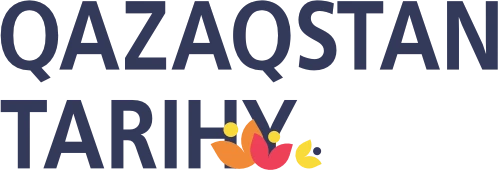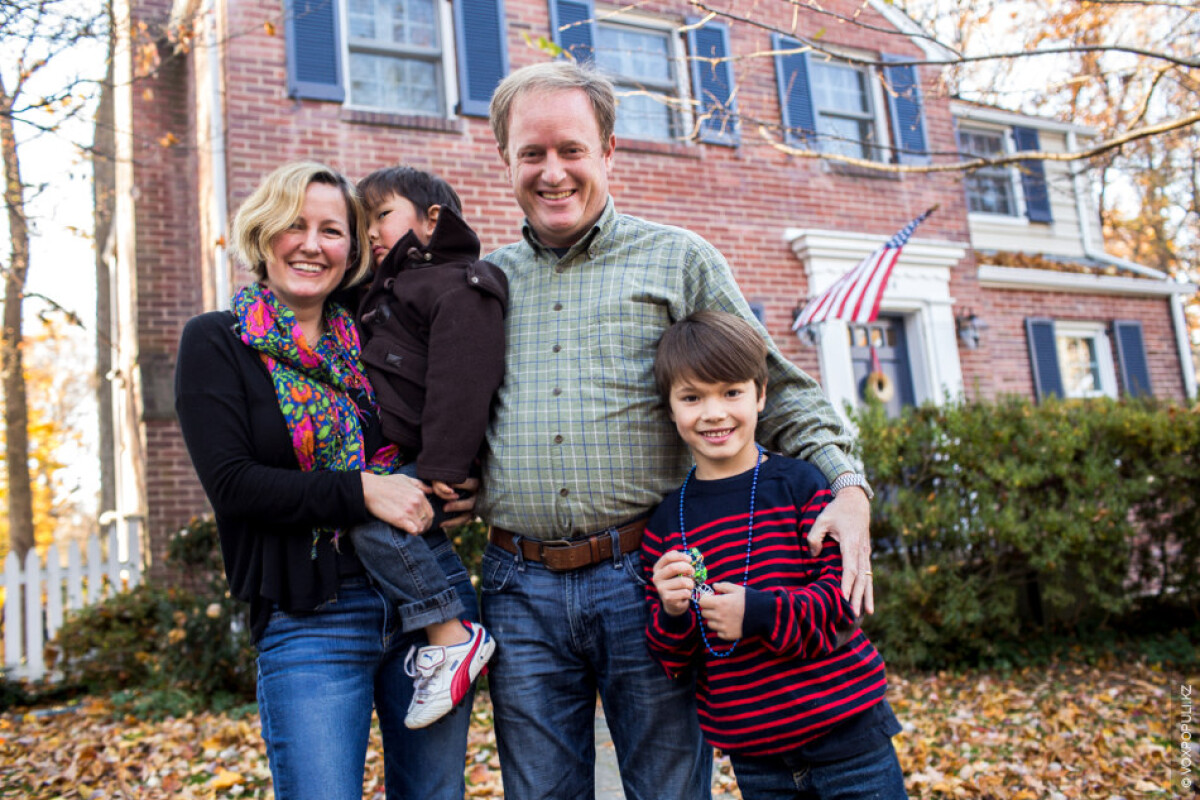
One such person is Akmaral Amirkulkyzy - a Kazakh who was born in Kazakh land, but moved to Europe by fate. We managed to meet, get acquainted with the senior associate of the Belgian cultural center, a member of the society BAF Asia, the chairman of the Kazakh society "Shanyrak" Akmaral Amirkulkyzy, and talk to her during her visit to Kazakhstan. We talked about the life and way of life of the European Kazakhs, what steps are being taken so that the European Kazakhs are not "swallowed" by strangers, whether the European Kazakh youth knows their native language and the fate of Kazakh adoptive children in Belgium.
- Akmaral khanum, welcome to the homeland of our ancestors. Let's start the conversation with the question of your homeland. According to rumors, you were born in Kazakhstan. And how did you end up in Belgium?
- I live in Belgium for about 20 years. I was born in the Zhambyl region, in Taraz, a city with a deep history along the Great Silk Road. Later, for family reasons, we moved to Almaty. Both the school and the university I graduated in the city, located on the slope of Alatau. In Almaty there was a good job and own apartment. Then I met my husband. He is a foreigner. At that time he worked in Almaty. I often went abroad for work. Later we were forced to move with my family. So fate threw me in Belgium, in Western Europe.
.jpg)
Today I work in the cultural center of Belgium. Along with the main work, I make every effort to strengthen the bridge of friendship between the two countries. In Europe I give presentations about the sacred and historical places of Kazakhstan; I acquaint with the Kazakh culture, with Astana. Thanks to such events, they are thinking about visiting Kazakhstan. Belgians have a good opinion about the Kazakhs. The Belgian cultural center is filled with Kazakh books.
- How do our compatriots live in Belgium today? How many Kazakh families live there?
- Since I began to manage the Kazakh society "Shanyrak" relations with the Kazakhs living in Belgium have become very good. In Belgium, about 500 Kazakhs live. Not all of them live in the same city, but live in different parts of the country. In the Kingdom there are more than 3000 Kazakhstanis. The Belgian cultural center works with them. The life and way of life of the Kazakhs living in the Kingdom have developed well. Many are engaged in small and medium business. Children know a foreign language well; they study in the best educational institutions of the country. Unfortunately, we do not have centers for teaching the Kazakh language, Kazakh cultural centers. This upsets us. The above-mentioned Kazakh society "Shanyrak" is both a cultural center and a school for learning the language. We often meet, we gather on the eve of Nauryz holiday, New Year. And at such times we share our memories of Kazakhstan and Astana.
.jpg)
- When did you open the "Shanyrak" society, which unites the Kazakh Diaspora of the Kingdom of Belgium? Tell us about the main activities of the society?
- As I said before, when I arrived, in our country there was neither the Kazakh cultural center, nor the Kazakh society. I think that the lack of a cultural center was affected by a small number of Kazakhs here. Therefore, I decided to take this matter into my own hands, unite all the Kazakhs scattered throughout the country, and open the society of Kazakhs. I called it “Shanyrak”. The society was opened in 2009. The Kazakh society "Shanyrak" is registered in the Cultural Center of Belgium. I registered in the society all Kazakhs living in Belgium, recorded who and in what city lives. There is also the information about the composition of the family and children. To date, the Kazakh society is financially assisted by the Government of Belgium. Thanks to this we managed to get a small library and books in the Kazakh language. When Kazakhs gather in the center, I often give presentations. I want the Kazakh families and youth to know the history of their country, language, culture, traditions and customs, tourist centers and this is my goal. After the presentation, having looked at all this, they want to visit Kazakhstan.
.jpg)
- What do the Belgians know about Kazakhstan?
- The Belgians have a keen interest in the Kazakhs, Kazakhstan. Therefore for them I often organize presentations on the history of Kazakhstan, tourist regions. The organization of such events is greatly assisted by the Embassy of Kazakhstan in Belgium. We get a lot of books, textbooks, audio CDs.
- June 22-25, 2017, V International Qurultay of Kazakhs was held in Astana. You also took part in it as an honored guest. The national Qurultay, held within the framework of the international specialized exhibition EXPO-2017, is of great importance. Did the Qurultay satisfy your expectations? Could you get answers to pressing questions?
- The main reason for my visit to Kazakhstan this time is the V International Qurultay of Kazakhs. I express my deep gratitude to the Association for the invitation. For the fact that, despite the fact that we are abroad, they do not forget about us, invite to our homeland, hold large meetings. I think that this is thanks to the open policy of Elbasy. I am glad that the Association, headed by President Nursultan Nazarbayev, gathers Kazakhs from all over the world.
By the will of fate we were far from our homeland. Initially, we did not think to go abroad, work there, there was no such goal. Every Kazakh living abroad had a kind of history and different reasons, finding him there. Some are descendants of Kazakhs, who migrated abroad during the years of disasters, other Kazakhs, are abroad for service purposes. Therefore, patriotic feelings towards their native land, the country, never fade in their chests. They yearn for their native land, fatherland, Kazakhstan.
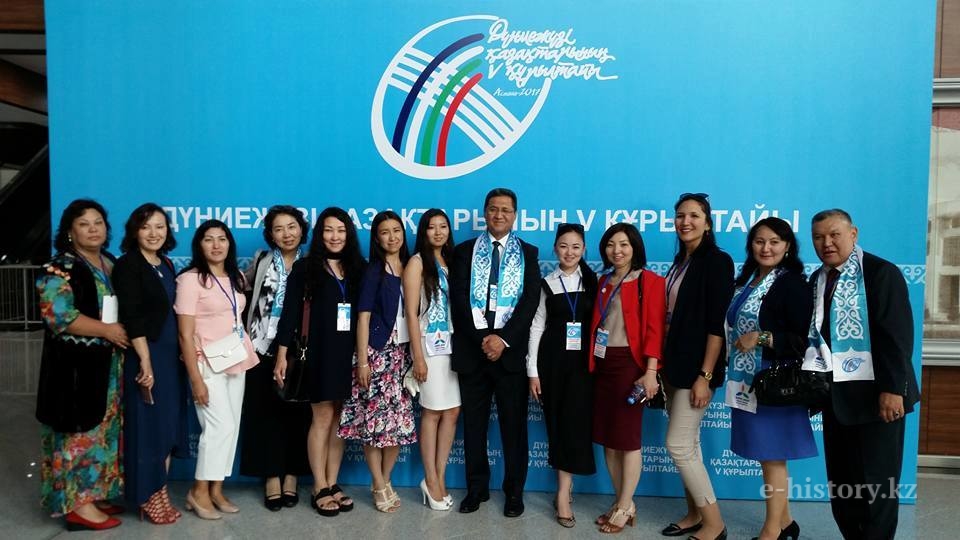
The purpose of our visit to the V International Qurultay of Kazakhs is not to walk around Astana, but to tell our foreign compatriots about today's prosperous, developing Kazakhstan, about the beautiful Astana. To bring to the homeland complex issues of foreign Kazakhs, to find ways to solve them. Unite all, scattered like a grain, Kazakhs under one shanyrak, to pay attention to language, mental problems of foreign Kazakhs. Foreign Kazakhs work together with the World Association of Kazakhs. Their business without us, our business without them is ineffectual. I want to thank the Association for their work.
We visited the international specialized exhibition EXPO-2017, a beautiful exhibition, and magnificent constructions of the century. We were surprised by the pavilion of Kazakhstan. Compared with the pavilions of other countries, our pavilion was ahead of all in terms of content, both in terms of subjects, and in terms of exhibits exhibited in the museum. Among European countries there are almost no such pavilions. Therefore, thanks to this international specialized exhibition, Kazakhstan once again declared itself. It turns out that Kazakhstan is a progressively developing country. We are proud of it. In Belgium they heard and know about young talented Kazakh singer Dimash Kudaibergenov. We also went to his concert. The concert was amazing. In the concert, the national mentality was reflected, etudes such as the hovering of the eagle, the blue mountains, the performance of the folk song on the dombra, the fluttering blue flag, were involved. We visited the Kazakh ethno-aul and have acquainted with today's Astana. In a word, this Qurultay was special.
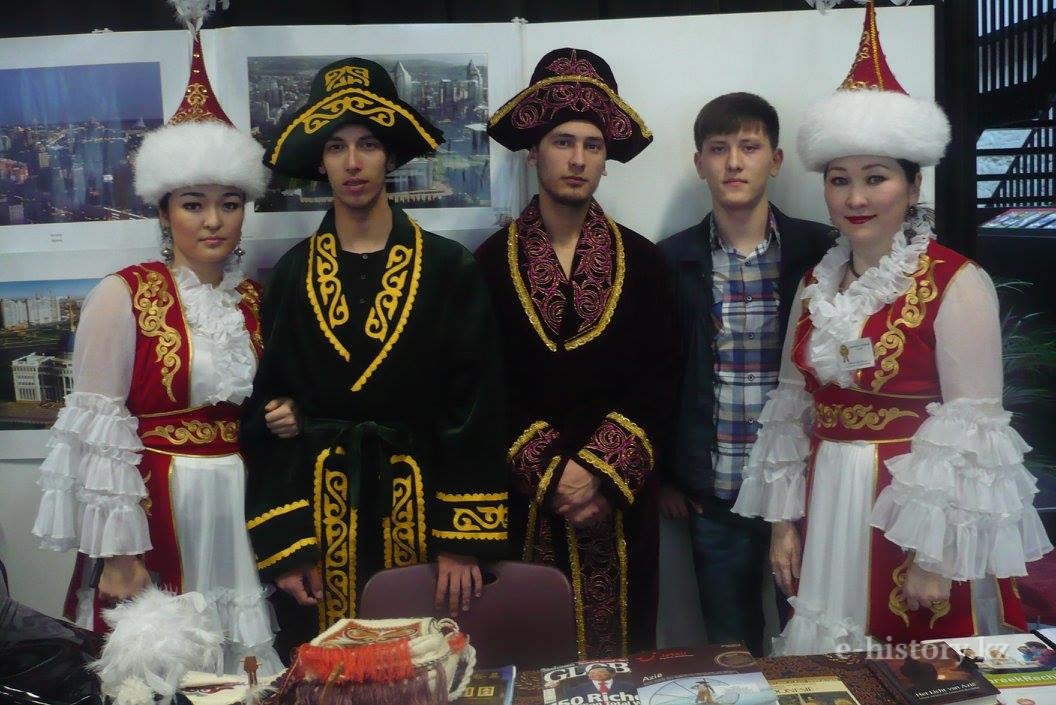
- Does the Kazakh Diaspora of Belgium support communication with the Embassy of Kazakhstan in Belgium? Perhaps, our Embassy will help to resolve the issue with the center of the Kazakh language, which you voiced above.
- The main meeting place of Belgian Kazakhs is the Embassy of the Republic of Kazakhstan in Belgium. The Kazakh society "Shanyrak" and the Embassy are in good relations. At events organized in honor of national holidays, significant events, the Embassy often invites the Kazakh Diaspora. And our Kazakh society is frequented by representatives of the Embassy. Employees of the Embassy often invite young people, give them advice, consult, invite to study in Kazakhstan. The Kazakh Diaspora living here did not go to the Embassy with complaints, problems. We meet only for good reasons. The Embassy provides us with textbooks, government symbols, books about Kazakhstan, and provides other assistance.
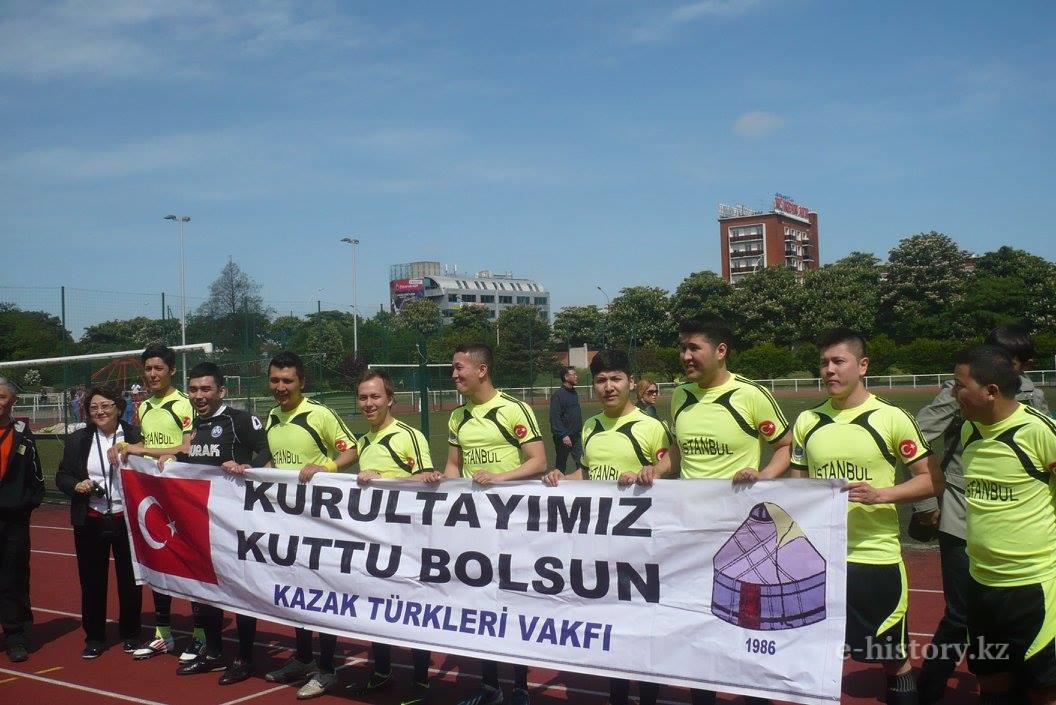
- You said that the Embassy often invites young people, gives advice. And in general, does the Kazakh youth living there want to visit Kazakhstan?
- The Embassy often tells the youth, "go to Kazakhstan, and get knowledge". And we are also talking about this. But still, young people have no intention of getting an education in Kazakhstan. I believe that this is a matter of the future. The fact that the country creates such opportunities, makes every effort to make the youth come back to the country, I think this is a huge success for a young country that has just started to develop. Someday, these young people will return to the country and work for the prosperity of Kazakhstan. And if we also constantly tell them about Kazakhstan, about the land of their ancestors, I hope that they will change their mind and return to the country.
- Small Qurultay of the European Kazakhs annually takes place in different countries of Europe. How often do Belgian Kazakhs participate in it? What is the purpose of the Small Qurultay?
- Kazakhs living in Europe do not return to their homeland. They live their own lives, educate their children, and open their business. In the Small Qurultay of the European Kazakhs, the questions of the preservation of the native language, the knowledge of national customs and traditions, the courtship of Kazakh families and others are raised and found solutions. That is, on this Qurultay previously unknown - get acquainted, the young people are coming together, many gather at this meeting. Our chairman Abdulhayim Kesiji lives in Germany. We do not just meet at the Small Qurultay, we have set goals, and to achieve these goals our thoughts and ideas must coincide, we are discussing the problems of the European Kazakhs. The chairmen of the Kazakh societies of different countries gather together to decide the issues of holding the Small Qurultay, share important topics. News about the European Kazakhs is brought through these Kazakh organizations. Last year, the Small Qurultay took place in Munich. According to the decision of the commission, the Small Qurultay is held every year in different states. Many try not to miss this Qurultay.
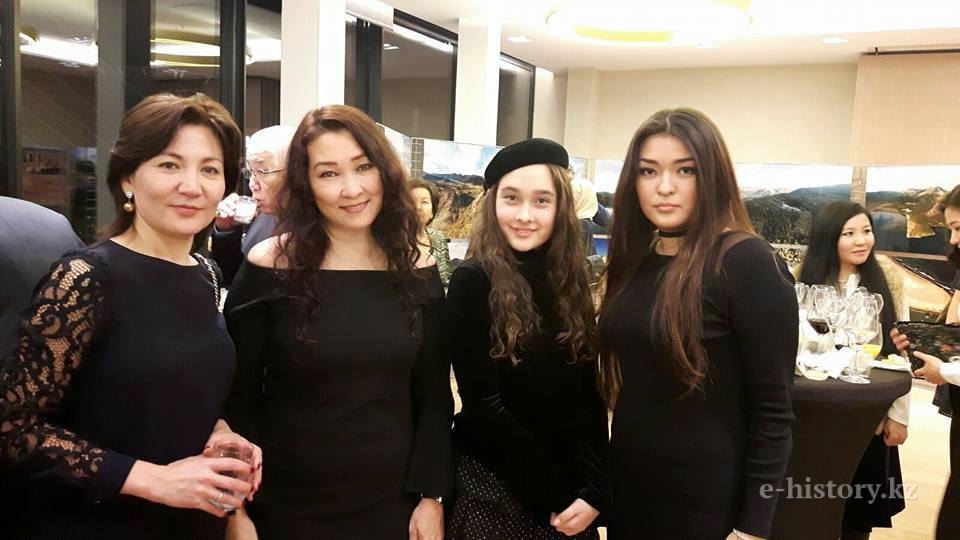
- The life of the European Kazakhs is stable. They have good business. But can they have any aspirations? What is the Kazakh Diaspora’s difficult problem?
- The main problem of the Kazakh Diaspora in Belgium is the lack of a Kazakh language center. There are no evening schools for Kazakh children. According to rumors, in France and Germany there are Kazakh schools, language centers. Of course, there are many Kazakhs. But we should not leave this issue unresolved, supposedly because there are few Kazakhs in Belgium or Holland, there is no demand. The number of Kazakh families living there is growing and increasing. Why not open a Kazakh school in the future if the number of Kazakh children is growing, and if there is demand? In the schools of the Belgian Kingdom, children have no opportunity to learn the Kazakh language. I believe that this issue should be resolved by the state. The smallest nation in Belgium is the Kazakh nation. Our voices do not reach the top.
- Kazakh youth of Europe go to kindergartens, schools, universities; their friends speak a foreign language. How do they learn Kazakh then?
- Of course you're right. We are in the heart of Europe. In kindergartens, schools, universities, children speak English, German, and Dutch. They leave in the morning, they come in the evening. Classes at schools begin and end at the same time. When children come home, we try to talk with them in Kazakh. We also all day at work communicate in a foreign language, and there are moments that when we come home, we even have no time to speak Kazakh. As mentioned above, in Belgium there is no center of the Kazakh language. We are planning to open such a center in the Belgian Kingdom. During the V International Qurultay of Kazakhs we met with the Minister of Education and Science of the Republic of Kazakhstan. Before that, I sent a letter requesting to provide us with textbooks on the study of the Kazakh language, and study programs. The Ministry replied that such textbooks will be provided to us. It was decided that they would provide textbooks on literature, the Kazakh language, and Kazakh history.
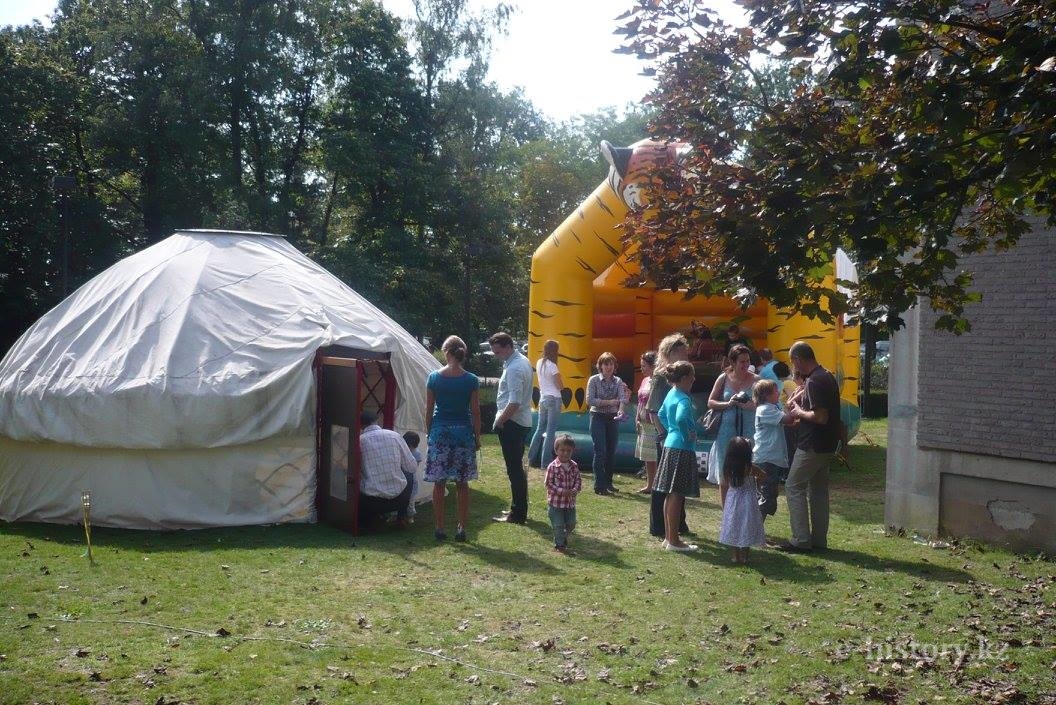
- How often do Belgian Kazakhs celebrate Kazakh national holidays and customs?
- Of course, Belgian Kazakhs gather and celebrate national holidays. There we not only have fun and remember Kazakhstan, but we also do not forget about national customs, during the holiday of Nauryz we hold and show such national customs as Tusau kesu (cutting the rope), besikke salu (put to cradle), or marriage. We have children, young people. Let them see, know, understand and remember. In order not to forget the native language, we talk in Kazakh, during the holiday we sing Kazakh songs, we play dombra. We drink Nauryz kozhe and eat national food. On the other hand, as they say, someone has a daughter, someone has a son. We often gather Kazakh youth to get to know each other, and if they like, let them create families, raise their shanyrak. And in another way, where can they meet? We want them to create couples among the Kazakhs, and do not go to foreigners. Guys and girls meet. In Holland, in a neighboring country, Kazakhs often organize soccer competitions. Our youth often participate in it. All this is done for the sake of the future of Kazakh youth.
- What do the European Kazakhs think about the return to their ancestors’ homeland? Did you yourself think to return to the country?
- My thoughts are consonant with the thoughts of European Kazakhs. And I understand them too. In comparison with Kazakhstan, when we left, and this was more than 20 years ago, and the current Kazakhstan, the difference is significant. The economy began to develop, the people became kinder, and they began to live better. But, to say the truth, I'm not ready to return. But even if we return, we will not ask for work from the state. Therefore, if I return to my homeland in the future, I want to come with my investments, and to contribute to the further development of Kazakhstan. Our children study abroad. Now my daughter graduated from the University in Belgium. She will soon receive a diploma. She practiced here, at the Embassy of Belgium in Kazakhstan. I persuaded her to work in Kazakhstan. Thus, she began working in Kazakhstan. I hope to God, and graduates will come to our Belgium under the "Bolashak" program. This is also due to my daughter. One day my daughter said: "Mom, I want our Kazakh youth to come to Belgium to study. And they all go to England and America. Why do not they come to Belgium?" In educational institutions in Belgium, it is slightly more difficult in terms of language. But still, we also speak English. The peculiarity is that to come here you should learn several languages. This is not easy, so many people avoid. Students who study with us master four languages. And now, Kazakh youth will be able to receive education in Western European countries.

- Several years ago the journalist of the National TV channel "Kazakhstan" Zhanar Baisemizova launched the first worldwide project "Kazakh children abroad". Then we learned that many of our children live in European countries. Especially many adopted children in Spain and Belgium. What do you know about this project? Do Belgians love children?
- In Belgium, children are very fond of. They adopted a lot of foreign children. Among them are children not only from Kazakhstan, but also from other countries. For each child they look with special love, tenderness. They do not let the children forget about their homeland, their origin. On the contrary, they help them to know their homeland, country, even their own parents. We heard about the project "Kazakh children abroad". Zhanar Baisemizova came to Belgium, shot this project, my daughter was an interpreter. She translated the speech of parents and children because these children no longer speak Kazakh. If it is possible to open the above-mentioned language center, we plan to teach Kazakh adoptive children also. Parents do not mind. And the children want to learn Kazakh. When I go to them for children's holidays they are interested in the Kazakh language, they are asking about Kazakhstan. They want to know themselves. At the request of children, some families even visit Kazakhstan. I also helped many families, told them where in Kazakhstan most of the historical places that they can visit, places where they can relax. Thanks to YouTube channels or Belgian channels they know only about Almaty and Astana. And they do not know about other cities. Many children here are from different regions of Kazakhstan. Among the children I know, there are children from Taraz, Aktobe, Almaty, and East Kazakhstan. Therefore, thanks to my advice, they visit their native places.
- How many adopted Kazakh children are in Belgium? Do they ask you for help?
- In Belgium there are about 450 adopted children of Kazakhstan. Many of them live in the provinces of Antwerp (where I live), Flemand and Braband. They have their own social organization. Our society "Shanyrak" actively interacts with them. We opened a dance group. It includes adopted Kazakh children. We taught them Kazakh national dance, gave Kazakh costumes. I regularly visit them, we communicate. Parents of adoptive children in Belgium once a year, in September, arrange a small holiday for children. This became a tradition. On this day, Kazakh children gather together with their parents. Our society and the Embassy of Kazakhstan in Belgium organized a yurt, concert program. On such holidays, Kazakh children get acquainted with each other, play together, communicate. Interestingly, Belgian families often say to these children: "You are Kazakhs, your homeland is Kazakhstan. We fell in love with you. That's why we took you to our house. You are such beautiful children." During the organization of the holiday or other event, they call me, ask, "What will be your help?" or "Can I report to the Embassy?" Then the Embassy prepares for them national food, set the table, bring baursak, kurt, koumiss. They organize exhibitions, present Kazakh books, brochures about state symbols, photos of Kazakh land. On this day, we play dombra, sing Kazakh songs. The holiday is arranged for adopted children, so that they do not think that "Only I'm adopted", on the contrary, to think that there are "many Kazakh children adopted as I am." And parents on such holidays try to solve the problems together.
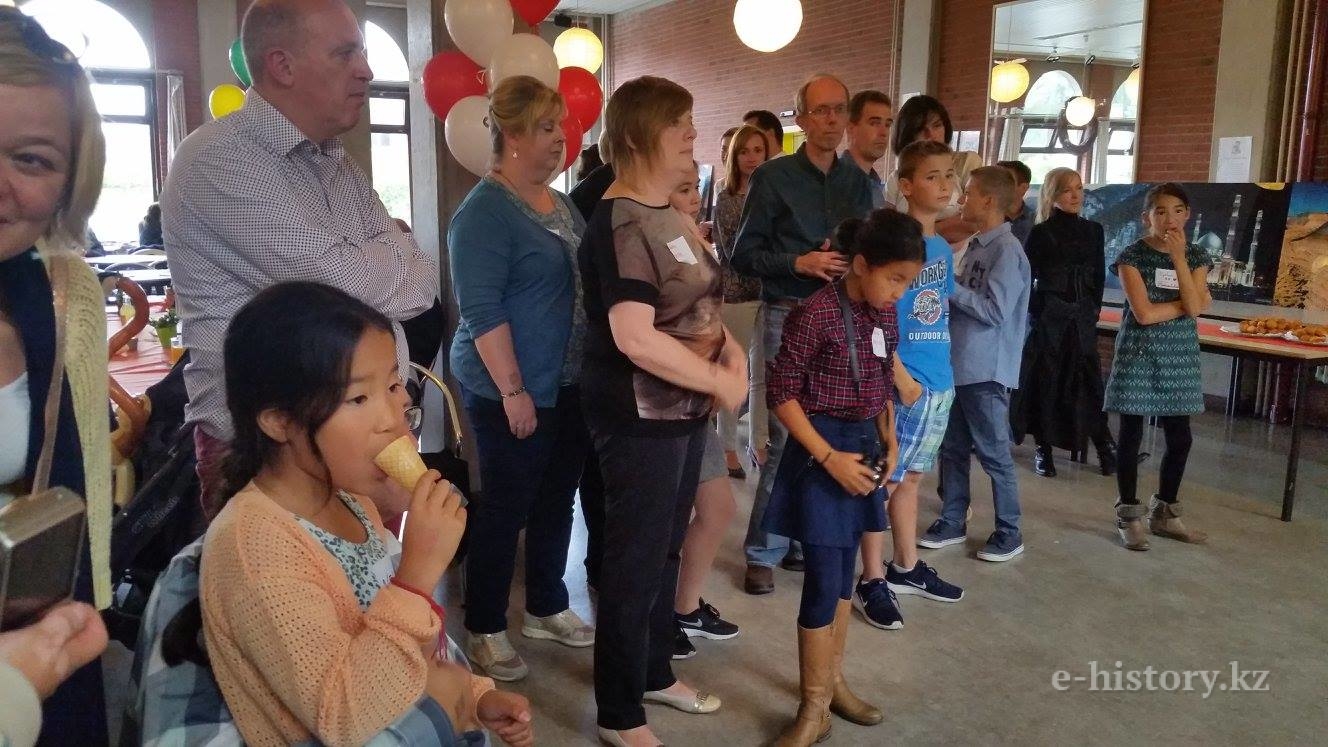
- Mrs. Akmaral, we have heard that many Kazakh children become victims of foreign adoptive parents. In fact, as a mother, did not you feel such difficulties among these children?
- Today in many European countries children are adopted from abroad. We also heard that such meanness is allowed. Therefore, the fate of every Kazakh child abroad really worries everyone. On the one hand, some children have a complex character. On the other hand, these parents are not their relatives. But I think that the Belgians will not allow such an attitude. They consider themselves to be the most cultured and most educated nation in Europe. And thanks to this, they live well, richly, and have a high economy. Such a holiday, the holiday of Good, like the Kazakh children of Belgium, probably is not in any other country. Therefore, I can say that these children are fine. It was not so easy to adopt these children. The parents’ social status was checked, a psychological test was conducted. The child should have a children's room, all conditions are created. And only after fulfilling all the conditions they are given children. Parents undergo a 3-4-month course. Among the children there are those who have changed their names and surnames, but there are also children who stayed with their name. At the moment, the smallest adopted Kazakh child is 4 years old, and the oldest is 19 years old. I know the Belgians Anami and Paul well. They were the first to adopt a Kazakh girl. Her name is Saltanat Bertles. She has another adopted sister. And also this family has two sons. Thus, this family with four children is one of the large European families. Kazakh children in Belgium know each other well. They communicate like children of one family.
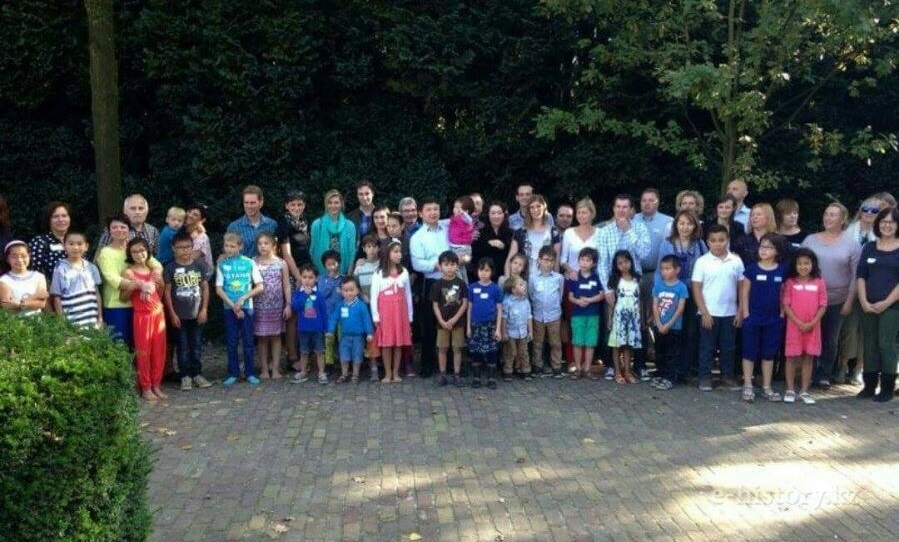
- In conclusion of our conversation, what would you wish your homeland?
- I really love my Kazakhstan. It grows and develops. The economy is growing and improving. Let its economy develop further. The whole world sees what we achieved in 25 years. With every word said, we grow in their eyes, we will walk with proud head, with the thought "this is my country, my people". In the next 25 years, let it reach even greater heights. Through Astana, Europeans began to recognize Kazakhstan. And thanks to EXPO-2017, I think Kazakhstan will become even more recognizable.
- Thank you for the interview! Say hello to our compatriots in Belgium.
Translated by Raushan MAKHMETZHANOVA
